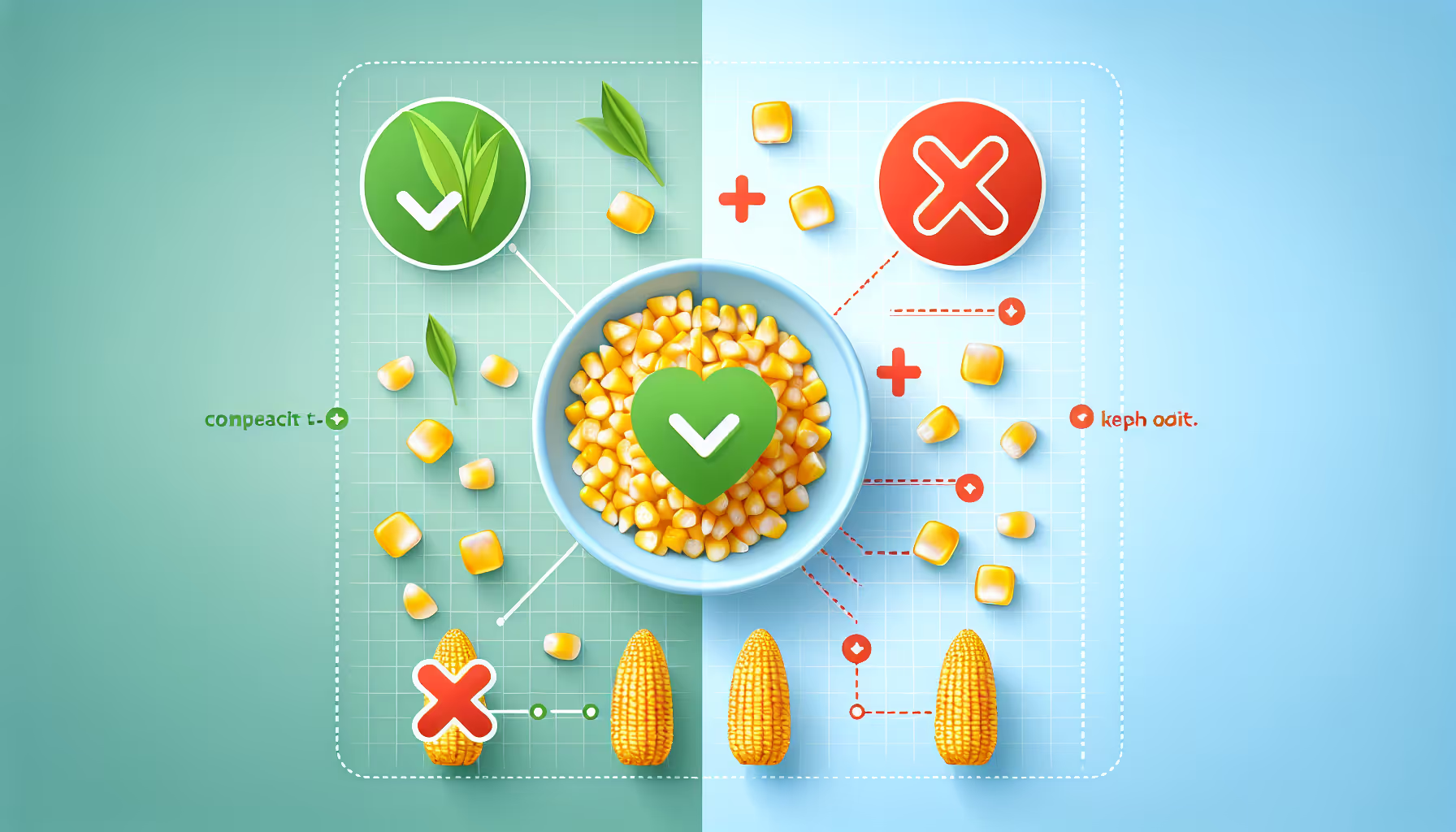Is Corn Compatible with a Keto Diet? Important Insights
The ketogenic diet is all about low-carb, high-fat foods that keep your body in a state of ketosis, burning fat for fuel instead of carbohydrates. With this in mind, many people wonder if certain foods, like corn, can fit into a keto lifestyle. Corn is a beloved staple in many diets, but does it have a place in a keto meal plan? Let’s dive into the details to see if corn can be considered keto-friendly.
Nutritional Profile of Corn
Corn is a versatile and widely consumed vegetable, often celebrated for its nutritional benefits. It is rich in essential vitamins and minerals, including vitamin C, magnesium, and potassium. Corn also provides antioxidants such as lutein and zeaxanthin, which are known to support eye health. Moreover, corn is a good source of dietary fiber, which aids digestion and promotes a healthy gut.
However, the nutritional virtues of corn come with a significant drawback for those on a keto diet: its high carbohydrate content. While corn offers various health benefits, its carb content can make it a challenging food to incorporate into a strict ketogenic regimen. For more details on how to balance your diet, check out our article on balancing pH levels with food.
Carbohydrate Content in Corn
Carbohydrates are a critical consideration for anyone following a ketogenic diet. Corn, unfortunately, is relatively high in carbs compared to other vegetables. A single cup of corn kernels contains approximately 27 grams of carbohydrates, with 3.3 grams of fiber, resulting in a net carb count of around 24 grams per cup. This amount is substantial for anyone trying to stay in ketosis, as most keto diets recommend keeping daily carb intake between 20 to 50 grams.
Here’s a quick breakdown of the macronutrient profile for one cup of raw yellow sweet corn:
- Carbohydrates: 27 grams
- Fiber: 3.3 grams
- Net Carbs: 24 grams
- Fat: 2 grams
- Protein: 5 grams
Given that a single serving of corn could consume most, if not all, of your daily carb allowance, it’s clear why corn is generally not considered compatible with a ketogenic diet. For more insights on managing your carb intake, you might find our article on understanding the alkaline diet helpful.
Is Corn Keto-Friendly?
Due to its high carbohydrate content, corn is typically not recommended for those following a keto diet. The main goal of a ketogenic diet is to maintain ketosis, a metabolic state where the body uses fat as its primary energy source instead of carbs. Consuming high-carb foods like corn can disrupt this process, making it difficult to stay in ketosis.
That said, some low-carb diets might allow for a very small portion of corn, but it would need to be carefully measured and accounted for within your daily carb limit. For most keto dieters, avoiding corn altogether is the safest choice, allowing more room for other low-carb vegetables that can provide similar nutritional benefits without jeopardizing ketosis. For more options on low-carb vegetables, take a look at our guide on alkaline vegetables and fruits.
Health Implications of Eating Corn on a Keto Diet
Incorporating corn into a keto diet can have several implications. Firstly, eating corn may kick you out of ketosis, which could hinder your progress in achieving and maintaining your health and weight loss goals. Additionally, the high carbohydrate content in corn can cause spikes in blood sugar levels, which is particularly concerning for individuals with insulin resistance or diabetes.
Furthermore, regularly consuming high-carb foods like corn may lead to increased cravings for carbohydrates, making it harder to adhere to a keto diet. On the positive side, avoiding corn can help you better manage your cravings, maintain stable energy levels, and keep your body in a steady state of ketosis. For tips on maintaining a balanced diet, consider reading our article on the differences between alkaline and acidic diets.
Alternatives to Corn on a Keto Diet
Fortunately, there are plenty of low-carb alternatives to corn that fit perfectly into a keto diet. One popular substitute is cauliflower, which is low in carbs and high in fiber, making it an excellent stand-in for corn in various dishes, from cauliflower rice to mashed cauliflower. For more ideas on incorporating low-carb foods into your diet, check out our article on creating the perfect alkaline diet meal plan.
Another great alternative is zucchini. Zucchini can be spiralized into noodles, grilled, or used in casseroles. Its versatility and low carbohydrate content make it an ideal addition to a keto meal plan. If you’re looking for more keto-friendly substitutes, consider exploring our article on flavorful alkaline spices and herbs for more creative ideas.
Conclusion
In summary, corn is generally incompatible with a keto diet due to its high carbohydrate content. While it offers some nutritional benefits, these are outweighed by the risk of disrupting ketosis. By understanding the nutritional profile of corn and its impact on your diet, you can make more informed choices and explore other low-carb alternatives that better align with your dietary goals.
A big plus of avoiding corn is the opportunity to discover new and delicious keto-friendly foods that can help you stay on track. For more tips and insights on maintaining a keto lifestyle, be sure to check out our article on switching to an alkaline diet without the stress. Stay dedicated, and enjoy your keto journey!






